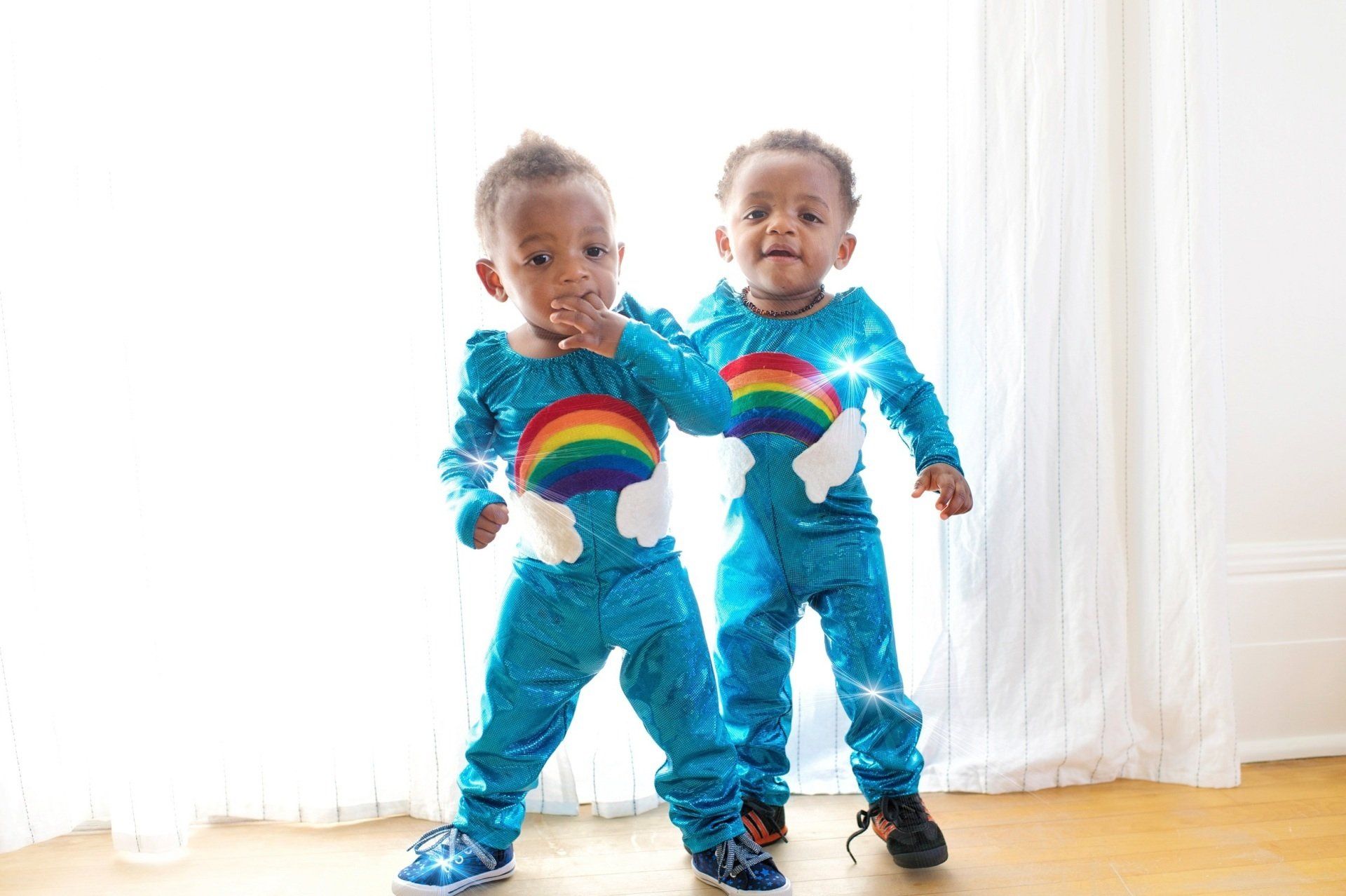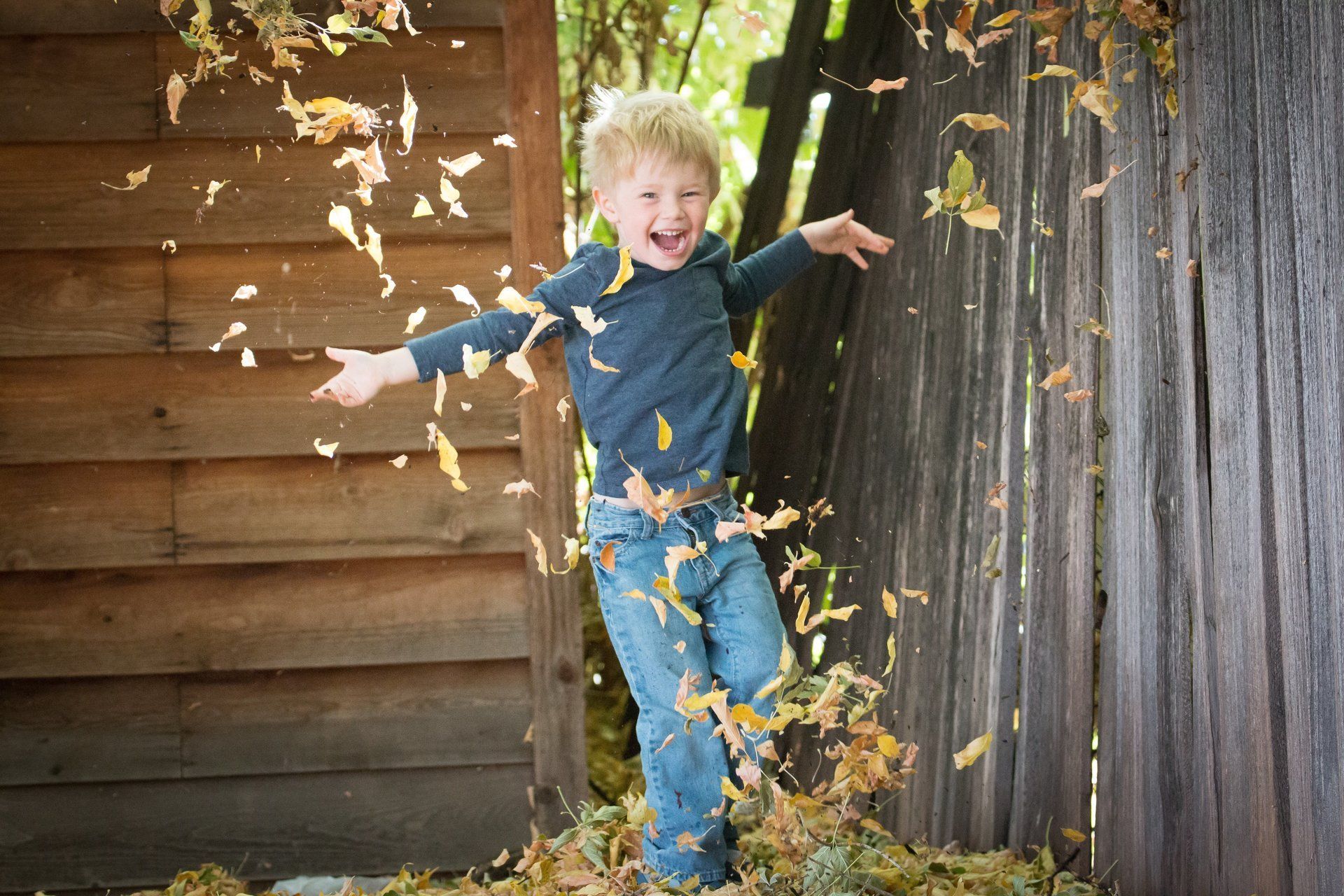What's wrong with us?
- by Jane Shaw
- •
- 28 Jul, 2020
- •
The only education model that doesn't work is the one we're using
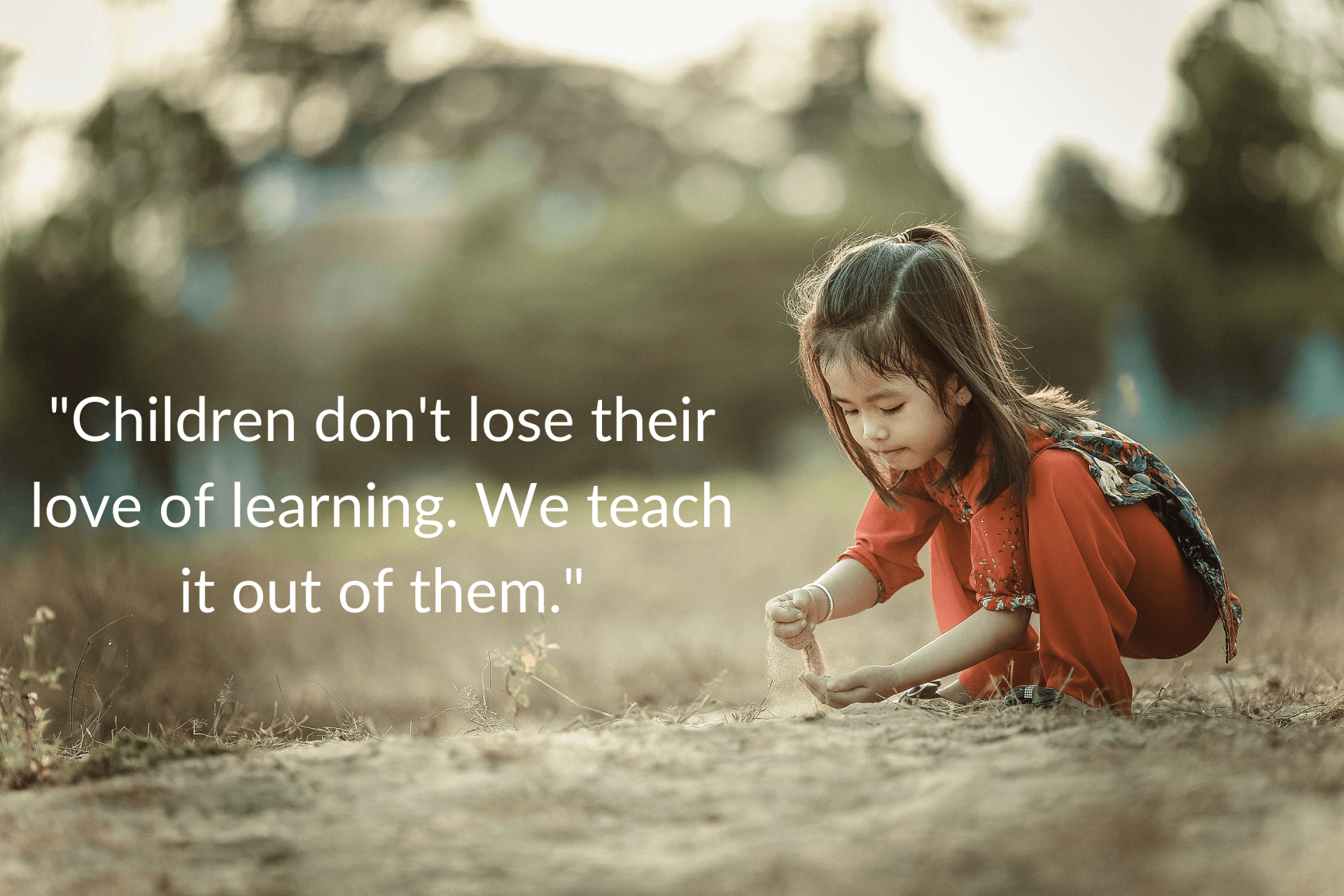
Move beyond ‘traditional’ education and there’s an array of learning approaches to digest. Some schools and parents follow The Montessori Method; others identify as Reggio-inspired. More ‘radical’ philosophies include self-directed learning, democratic schools and unschooling.
It doesn’t stop there - delve deeper and you’ll quickly discover nature play and risky play; loose parts play and tinkering; open-ended play and anji play - the list is as diverse as children themselves.
When you start looking at this multitude of approaches, four things stand out.
Firstly, there are more similarities than differences in these models. The names and details change, but the principles are from the same stable.
Secondly, these approaches work - children learn, and they learn well. Naturally, there is variation - success and failure depend on the quality of the implementation, and some methods are more suited to certain children and families than others. But, in general terms, the results are self-explanatory.
Thirdly, the reasons why these models work are well understood. The ideas they extol complement what we know about learning and how children’s minds work. Talk to psychologists, learning experts and child development specialists, and they will all explain the importance of intrinsic motivation over reward systems; of exploration over rote learning; of trust and relationships; and of movement, art and music. They will all agree: play is how children learn.
The similarities are fundamental. These models:
- trust children
- assume that children are motivated learners
- focus is on learning, not teaching
- are, usually, child-led and self-directed, rather than adult-led
- involve exploration, investigation and testing rather than rote learning
- assess attainment and progress through observation; not testing
- focus on the whole child - arts and music, outdoor and physical activities are seen as essential for learning
- recognise that children learn from other children
- treat interaction with the natural world as integral
- put relationships at the core of learning - teachers often stay with the same group for years, and parents and the wider community are at the heart of the learning journey.
These fundamental similarities are why the last point of note is so important.
Fourthly, there is one method of education that is glaringly at odds with every other approach - because it does not adhere to these tried, tested and proven principles. There is one method of education that is not based on what we know about how children learn. There is one method that considers play as a treat; as a break from real learning, as something that can be used for reward and punishment.
And that method of education is the one that prevails in the Western world.
It’s a teaching philosophy that puts The Curriculum before the child. It assumes that children can - and should, and will - reach pre-ordained milestones at fixed points.
Child development, and the psychology of learning, dictate that this model shouldn’t work. And when we look at the ‘results’ it produces, it’s clear that it doesn’t. It is a system in which ‘motivating’ and ‘engaging’ children is a battle; it is a system associated with childhood anxiety and stress; it is a system bemoaned by employers for producing young adults who enter the workforce without the skills they need.
Any of those factors should be a warning that something is very wrong. But one of those factors stands out.
“It is a system in which motivating and engaging children to learn is a constant battle.”
That is terrifying.
Learning is the very reason childhood exists. Look at evolution, look at history, look at countries which are not ‘developed’, and look at children who have not experienced ‘the system’.
Childhood is learning.
Children love to learn - babies moving a teether from hand to hand, toddlers intently examining a puddle, pre-schoolers absorbing Octonauts or Deadly 60… or school-age unschoolers who decide that the time has come to start reading.
So when does this love of learning diminish, or cease? An unschooler, or member of a self-directed school, will tell you that it doesn’t. Children do not lose their love of learning. We teach it out of them.
To have created a system in which children need to be cajoled to learn is to have created a monster.
What if modern day schooling is not an opportunity to learn - what if it is the stifling of natural curiosity?
And yet, when we start down this route then where do we stop? What about ‘play’? It is often described as ‘the work of childhood’ - but is treated as something for the youngest children, until they are ready for ‘proper’ learning.
Those in US kindergartens argue that four is too young for worksheets; those in British reception classes worry that five is too early to transition to formal learning; those in Australia worry that six is too young to teach reading.
But the issue here isn’t the age at which ‘formal learning’ becomes OK. The true problem is that the education system itself is not OK. It does not reflect what we know about learning, whether our children are six or 16.
The real issue is not when we take away ‘play’ - it’s that we remove the opportunity for self-directed, exploratory learning (which often happens to be play-based).
This is not simply a philosophy of education. It does not stop at the school gates - it has become a philosophy of childhood. As societies, we have grown up with it and adopted it, so it is little wonder that it permeates deeper than school.
Is it coincidence that the societies which do not trust children to lead their own learning are the very same societies that do not trust their children to climb trees or cross the road?
Is it coincidence that these are the societies which measure the success of our young people by their academic achievements - yet for ourselves, as adults, we want a more holistic approach, prioritising happiness over ‘success’ or aspiring to switch our careers for jobs we love?
The evidence, the research, and our children themselves tell us that the majority of learning approaches - those that share the same basic principles - have got it right. Learning should be self-directed. It should be holistic, involving the whole body, the whole person, the whole community. It should allow for differences - in speed, in learning style, and in motivation.
So why does an outlier, an anomaly, continue as the mainstay of Western educational systems?
The answers are simple. Habit. And change is hard. The few who succeed in the current system become the leaders and decision makers, so they stick with the status quo that didn’t do them too much harm.
But perhaps now is the time for change. We are in a time when there is a new necessity for outdoor play. Perhaps that will be the catalyst.
Because the need for change is great.
Play heals. Play lets our children work through their experiences and traumas, through change and strange times. Our children need play more than ever.
Our children’s experiences have become more diverse than ever. Some have spent months hot-housed by a pushy parent; others have sat in front of a screen for nine hours a day; while still more have experienced the beauty of freedom, and self-directed learning and play.
When these children go back to school it will be more difficult than ever to create homogeneous learning plans, and to make children sit at desks. No one wins when we try to find one cap to fit all those children.
Child-led learning empowers. It restores the self-esteem of children who have been left behind. It prevents the frustrations of those who have leapt ahead, and of those who resent once again be cooped up, caged and controlled. Child-led learning allows every child to fly.
Our children need connection - with each other, with community, with trusted adults. Genuine connection that comes from exploration, support and understanding; not from being told what to do.
Even before 2020, learning desperately needed a new normal. The time to reject this anomaly, this outlier, this habit, had already arrived. It’s an experimental approach that had already failed, but no one had quite got around to doing anything.
But that need for change just became a lot more urgent.
Our children don’t just deserve better. They desperately need better.
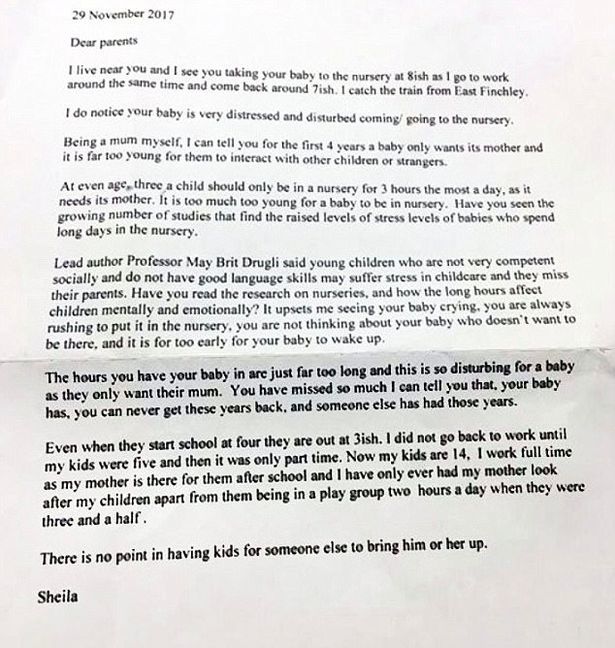
When Sheila wrote her letter, I’m not sure what she thought might happen next. But I’m guessing that she didn’t anticipate that it would hit the national press and set the internet on fire; or that she would be derided across the land.
If you’ve yet to come across Sheila, the story goes like this. Last week, a couple received a letter from Sheila - someone they have never met, but who apparently takes the same route to and from work as they do. At the same time.
In her infinite wisdom, Sheila decided it was OK to tell these parents quite how bad they are (mainly by explaining her own exemplar life choices). In doing so she made it clear that it was the mother’s responsibility to do the childcare; and signed off with the caring, sharing line “There is no point in having kids for someone else to bring him or her up”. (sic)
Now clearly, Sheila is somewhat lacking in social skills and 21st century values. And she’s not quite quoted her research correctly; nor understood that a baby doesn’t have the cognitive skills to cry in anticipation of a future event. (Anyone who has had a cheery pre-schooler right up to the moment of drop-off can recognise this.)
But still, Sheila has raised a really important issue.
There is a solid base of research that children under two in nursery settings have really high levels of cortisol - the stress hormone that, in adults, is linked to heart disease, weight gain, anxiety and depression.
Quite simply, very young children in nurseries are stressed - and it’s something that we need to acknowledge, talk about and respond to.
Now, acknowledging the evidence does not mean jumping to Sheila’s conclusion that childcare is bad and mothers are good. If only life were that simple.
Talking about the role of childcare in our children’s well-being is emotive - but we owe it to our children to have an evidence-based, non-judgmental debate about whether our current model is doing more harm than good.
We need to know more. What exactly is causing the higher levels of stress? Is it the group dynamics - asking children to do things like share when they are simply too young to understand? Is it the physical environments - too noisy, too bright, too over-stimulating? Is it the lack of attachment to a special someone?
As parents we need to be aware of this research to help us make an informed choice about what is right for our child and our family. Policy makers need to recognise it in order to develop a childcare model that meets the needs of children as well as employers. Virtually all childcare providers do everything in their power to make their setting as good as it possibly can be - these providers need to know what they can do to reduce the stress these babies experience.
The debate about childcare often centres on economics - that families have to work; or on resilience - children need to just get on with it. But both these arguments are flawed. Mental health problems cost the economy an estimated £105 billion a year. Secure children grow into resilient adults; negative childhood events are strongly linked to adult mental health issues.
Sheila is a muppet. Let’s treat Sheila’s jaw-droppingly inept curtain-twitching with the disdain it deserves. And childcare is here to stay, whether or not the Sheilas of this world like it.
But let’s talk about that childcare, let’s have the debate. Let’s not say “well, we’ve got to work, so we’ll settle for the status quo”. Because it’s only when we accept the evidence that we will create environments in which we can be sure that our children really are getting the best possible start.
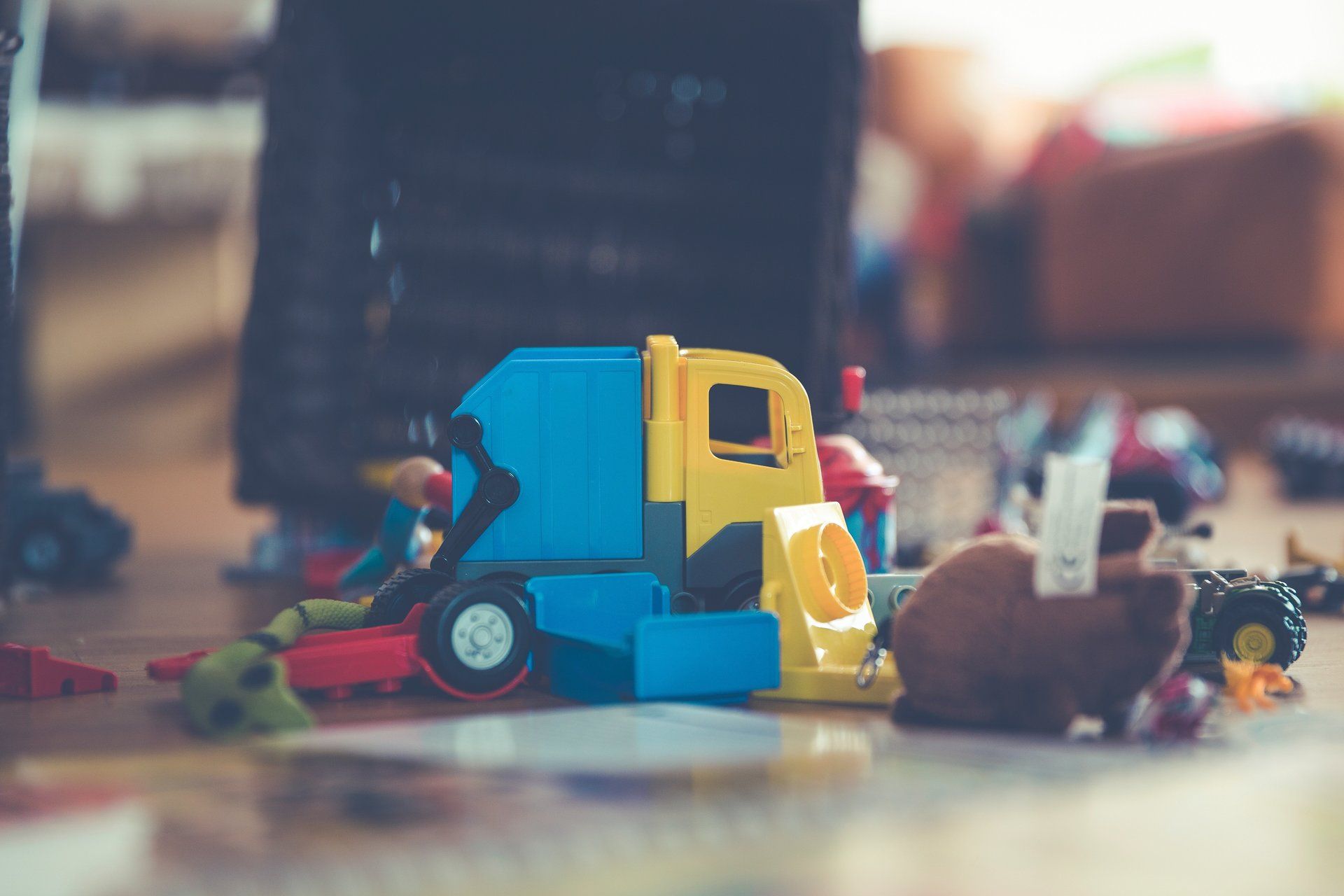
Thank you so much for everything you do for our children. We know how much you love them; we understand that you want to show them you love them. We know how much you want to make them happy. We are truly grateful that they are so privileged to have you in their lives.
But our children have a problem. They are growing up in a very different time than you did - and than we did. They are the generation that want for nothing. Everything is so cheap, so accessible, so now.
Do you remember when you desperately wanted THAT toy; THAT bike? How you had to wait for months, until your birthday or Christmas, and then you played and played and played with your precious new possession?
Our children never experience that.
How many of your toys do you remember to this day? Most? All?
How many toys did you have that you didn't play with? Three? Four? None?
How did you feel when a toy broke?
For our children their toys - their possessions - are unimportant. They’re just not valuable. If they break, they get replaced. If they've been played with for a couple of days they get put away, never to be seen again. Ask my children to list their toys, and they could maybe name 10 or 20 per cent of what they own.
Our children have too much.
We know it's not your fault. We know that you just buy them ‘a little something’ when you see them. That you have far more money available to spend on them than you did on us. That you are understandably delighted that you can give them the things that you couldn't have.
But let me put that in perspective. Every time they see you they get a little something. And every time they see every other family member, they get something. When someone in their class of 30 has a party, they get a party bag. A party bag doesn't contain cake and a balloon. It has sweets, chocolate, balloons, pencils, toys, arts and crafts, books...
The supermarket hands out trading cards with the shopping. School gives them rewards for walking to school, and taking part in the reading challenge, and for raising money for the latest charity day.
When the toy shop has a colouring competition, my daughter gets a colouring book, some headbands and some sweets - just for entering.
I could go on, but you get the picture. Three or four times a week, our children receive ‘a little something’. There is no value, no anticipation, no excitement. There is expectation, entitlement, and immediate dismissal.
And it's not just the ‘little’ somethings. No one wants to be stingy, and everyone can afford more than they once could. And toys are just so cheap. So birthdays and Christmases are now full of a lot of stuff - that quickly gets added to the pile of the instantly forgotten.
I know you only gave our children ‘a couple of things’. But so did everyone else.
Our children have too much. And it does far more than make them spoilt.
The facts are these. Children with too many toys don’t learn how to play properly. There is evidence that a child with fewer toys becomes a more imaginative, creative and content child. She becomes more resourceful; she develops a longer attention span and better social skills.
The child with fewer toys is less likely to be bored. The siblings with fewer toys are less likely to quarrel, and more likely to play together.
We do not want to bring up children who get everything they ask for. We want them to learn to value their possessions. If our son leaves his binoculars on a trip, then we don’t want someone to give him a new pair the next week. If that’s what happens, we cannot complain when he grows up with no understanding of consequences, responsibility or money.
He is not entitled to new binoculars, any more than he is entitled to a job. If we do not teach him that, we are setting up our child for a life of selfishness, unhappiness and continual discontent.
So what am I asking? That you no longer show our children that you love them, that you no longer give them gifts?
No, of course not. But because I know you love them, I am asking you if we can do things differently.
Please, let’s stop buying for the sake of it. Our children know you love them. And not because you buy them gifts. Our children love you too. And it’s not because of the gifts you give them.
We have been in the habit of giving too much for a long time, and it will be a hard habit to break. I don’t want my children’s faces to drop because they don’t receive as many gifts this Christmas as they did last year; I don’t want them to think they’ve been naughty all year!
But please, can we try. My children love you. If you ‘spoil’ them with your time, they will be overjoyed.
Grandad, your grandson is in awe of your knowledge of astronomy. Perhaps you could share that with him? Take him to an event, show him a telescope. He will hold those moments precious.
Grandma, your grandaughter loves to bake, and our culinary skills are woefully inadequate. Can you imagine how much fun she would have if you showed her how to fold the cake mix, while telling her stories of the naughty things her daddy used to do?
We are not asking you to swap gifts for money, but when we have spoken about fewer presents, you have still wanted to give them ‘something’.
The harsh reality is that they will enter the adult world with the burden of debt, the worry of whether they can afford their education, and with little chance of owning their home.
My son has about £2,700 of lego. He’s nine years’ old. I can only begin to imagine how many thousands of pounds have been spent on gifts for him. Imagine if some of that money was saved; and on his 21st birthday he receives £5,000.
Having grown up without expectation and entitlement, he realises that his family have thought about what he will need to give him a headstart in his adult life. The people he loves have given him choices! He can travel; he can study; he can buy the car that will take him to the job in the next town; he can take up the unpaid work experience that will lead him in a direction he loves; he can save the money and have a safety net.
And of course, sometimes between now and then, there will be something he really wants. And if he waits, then maybe - just maybe - his aunts will join together and - gasp - he will be ecstatic when the football kit he’s been dreaming of is there, under the tree; and he will wears it for days, weeks, months on end because it’s so precious!
Do you remember that anticipation, that excitement, that pride in our possessions? Loving something so much you can barely bring yourself to touch it? Treasuring it?
Surely that’s the greatest gift we can give our children?
We love you, and we thank you again for everything you have done for us and for our children. Please, help us now by giving our children a gift they can truly treasure; the gift of less.
x

